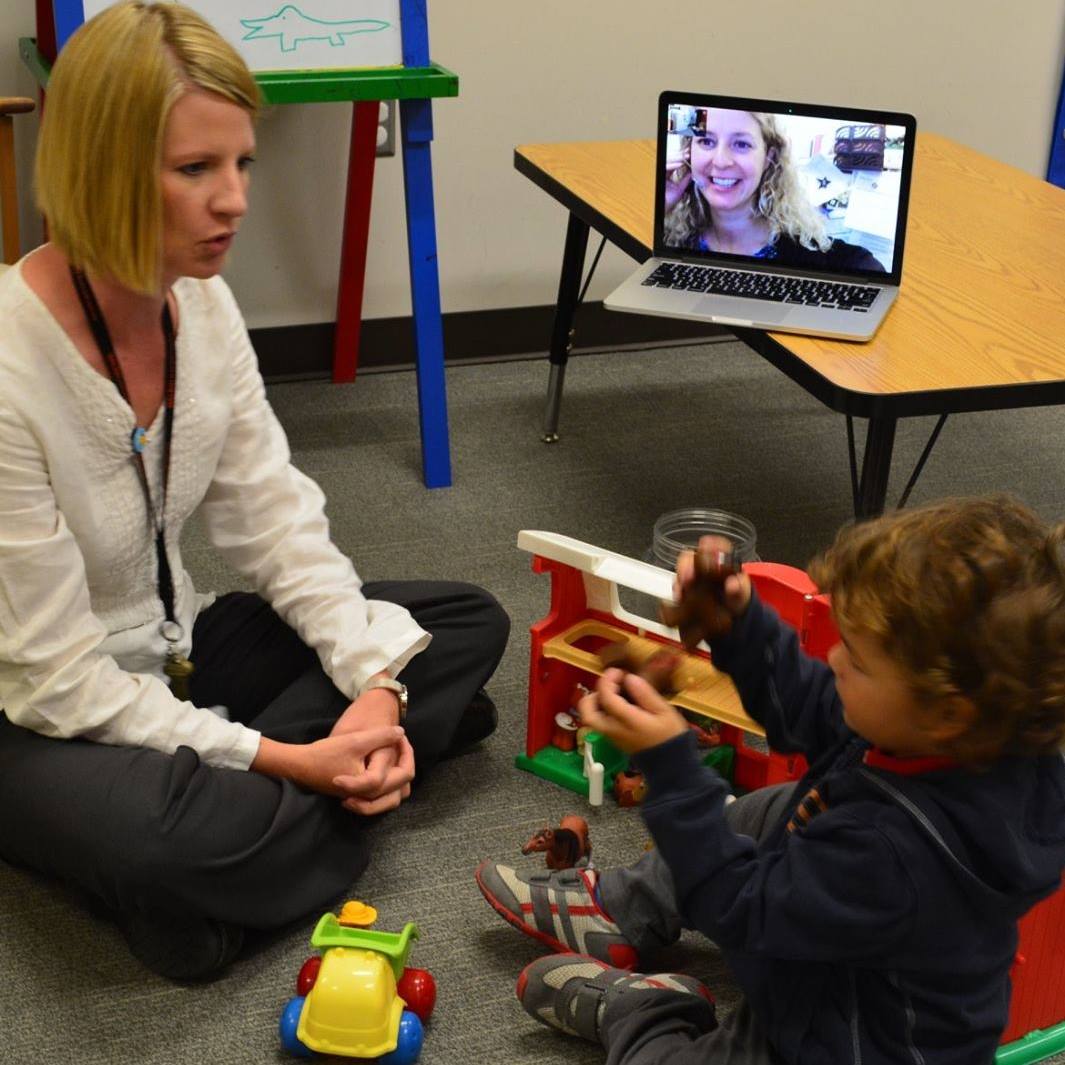Listening and Spoken Language Graduate Certificate Program

A speech therapist playing with a little boy.
LSL Graduate Certificate Program
Overview
Today, a majority of children who are Deaf/Hard-of-Hearing use some type of hearing technology to access communication and their environment. For children who use hearing technology, full-time access to well-fit hearing technology and an explicit focus on auditory skill development are essential bridges to the use and integration of these technologies.
In a five-semester time frame, students enrolled in the Idaho State University Listening and Spoken Language Graduate Certificate Program will participate in coursework, interprofessional projects, and experiences to gain the knowledge and skills needed to apply relevant and current evidence-based practice for children who are DHH and their families. Through this program, students will have the knowledge to set high expectations for the outcomes of children who are DHH through the following core competencies:
- Identify how to support and optimize full-time use of well-fit hearing technology to ensure a child’s access to the general education curriculum through communication and collaborative services
- Administer and share comprehensive assessment results from hearing and/or communication skills as the foundation for a comprehensive educational program with high expectations
- Implement an intensive, individualized, family-centered intervention and educational program both in person, via telepractice (with distance learning technologies), and/or in itinerant services
- Communicate assessment and educational programs with an interprofessional team of families, speech-language pathologists, educational and clinical audiologists, and general educators.
This program is focused on providers who serve children who are DHH from birth to 25 years of age. This program will provide educators who have an existing degree and will be working to serve children who are DHH through alternative models of intervention (such as telepractice, itinerant and consultative teaching). Courses and faculty will adhere to ongoing, respectful dialogue supporting the full spectrum of communication and language options and will train educators to support access to content and communication through optimizing perceptual saliency.
Courses (27 Credits)
- CSD 6691 Special Topics: Cultural and Theoretical Foundations of Deafness (3 credits)
- CSD 6620 Early Language Development and Disorders (3 credits)
- CSD 5560 Advanced Topics for Educational Audiology (3 credits)
- SPED 5523 Instructional Design (3 credits)
- CSD 6691 Alternative Models for Serving Children who are DHH (3 credits)
- CSD 6602 Clinical Practicum and Experiences (3 credits)
- SPED 5529 Multiple Disabilities (3 credits)
- CSD 6655 Literacy Development (3 credits)
- CSD 6652 Auditory Language Development (3 credits)
Minimum requirements for consideration:
- A BS/BA in Communication Sciences or a BS/BA in another field. .
- A GPA of 3.0 or better on the most recent 60 credits of coursework
- Three letters of recommendation (at least 2 from college/university level instructors, academic or clinical), personal essay, and resume
APPLY
- Apply to the Graduate School at Idaho State University (supplemental application, fees assessed)
- We will accept students until July 15th of each year.
- Transcripts of the last degree
- Letters of Recommendation:
- Three letters of recommendation that highlight your ability to successfully complete a graduate certificate program, work with children who are DHH
- Do not send letters of recommendation to our department. Please read the instructions located on the CSDCAS website for details.
- CV/Resume: Experiences/Achievements/Conferences:
- Employment, related academic, volunteer experiences, work, internships
- Awards, certification areas and endorsements, honors
- Conferences attended
- Personal Essay
Contact
Kristina Blaiser, Program Director, kristina.blaiser@isu.edu, for more information.
